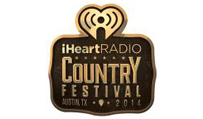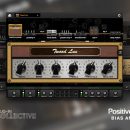Lady A is the latest in a long line of musical acts that have ended up in court over a band-name dispute. So, if you’re using a band or stage name, you need to make sure it really is yours. As the Lady A case has demonstrated, it’s not just major-label artists who can get caught up in costly band-name disputes; an independent act risks losing the brand they’ve spent years building if the name isn’t properly protected and a major-label act suddenly starts using it too.
The name of your band is valuable. In fact, it may be the most valuable asset you own. It identifies your group and your unique sound. Your fans follow that name and it will grow in value with your reputation. To protect it, you must pick a unique name and ensure that you control it.
Devastating Consequences
As your band’s success grows, you don’t want to be forced to change your name. You don’t want other bands using your name, confusing your present and future fans. And what happens if members change, or the band breaks up?
At the very beginning, when you name your band, pick an original name. I remember a popular band named Press that I heard in Ferndale, Michigan, in the ’80s. They had a great following. Atlantic Records signed them in 1987, changed their name to Rebel Heels and released an album, “Rebel Heels.” I heard they changed their name because it conflicted with another band also named Press. They folded after that first album and I always wondered: Did the name change cost them their loyal following?
Changing your name wipes out years of positive momentum. Your fans know your name, so you don’t want to reintroduce them to a new one. Years of reputation building will be lost.
Avoiding a Name Change
The first step is to pick an original name. Make a list of potential names. Do an Internet search for any bands with the same or a similar name. Band names are protected by trademark law, and anyone who adopts a confusingly similar trademark to an existing trademark is infringing. “Confusingly similar” is a complicated legal term, but basically, if consumers (fans) would likely be confused as to which band is playing, it’s confusingly similar.
You don’t want to be infringing. So, strike out any band names that are the same, or confusingly similar, to existing bands. When you’ve narrowed your list, you should have a trademark attorney do a more complete search of your preferred name to “clear” it legally. The money you spend is a worthwhile investment.
After you’ve cleared the name, register with the U.S. Trademark Office. Federal registration provides nationwide benefits that you can use to enforce your trademark against any infringers.
Lady Antebellum vs. Lady A
Country band Lady Antebellum recently decided to change their name to Lady A, explaining that when they first started using “Antebellum” 14 years ago, they didn't consider the pre-Civil War "associations that weigh down this word," including ties to slavery.
The band is now in a lawsuit with Anita White, a 61-year-old singer from Seattle who’s been performing and recording as Lady A for decades. Who will win? The court will decide. But Ms. White would have a much stronger case if she had registered her name.
Planning for Change
Bands break up, members leave, tragedy strikes. So, you have to plan for change. While you’re together, everything’s great. But what if members leave, or the entire band comes to an end? Who owns the name and who can continue using it?
The band Journey is currently in a dispute over its name and millions in royalties. Journey co-founder Neal Schon and longtime member Jonathan Cain claim that two other band members, Ross Valory and Steve Smith, are trying to take the Journey trademark. Who owns Journey’s name is confusing because of how it was handled through the years.
Tragedy can also lead to band disputes. Lynyrd Skynyrd lost Ronnie Van Zant and Steve Gaines, among other band personnel, in a 1977 plane crash. Ten years later, several of the original band members, and Ronnie’s brother, Johnnie Van Zant, began touring as Lynyrd Skynyrd. The widows of Ronnie Van Zant and Steve Gaines sued for damages, and won. Interestingly, the court ruled that at least two original pre-crash members must be in the band for it to continue as Lynyrd Skynyrd.
Trademarks, Logos and Symbols
How do you avoid getting into a band name dispute? You have to plan for all possibilities. Who owns the name is one of the most important decisions you’ll make. Also, who owns the related trademarks, logos and symbols. Business-savvy rock band Kiss even registered their famous face makeup with the USPTO. They’re all owned by Kiss Catalog, Ltd.
The best approach is to follow a typical business model, with all intellectual property assigned to the business. Trademarks are commonly owned by a single business entity, typically a corporation. The owners then determine how they control and own those rights. Decisions are made according to the rules and regulations of the business. Disputes regarding who owns the trademark are controlled by well-defined legal standards.
Written Agreements
A contract signed by all members is another way to define who owns a band's name. But it has to anticipate all future possibilities, and great care needs to be taken in drafting the agreement. Over time, it will likely need to be amended for unanticipated events, making it not the best solution in my opinion. Getting everyone to agree on changes could be difficult, if not impossible. A corporate structure is much more flexible.
Guns N’ Roses is an interesting exception. Their trademark registration lists the owners as W. Axl Rose, Saul Hudson and Michael “Duff” McKagen. So, unless there’s a side agreement between these owners, use of the name would require all three to agree – a situation that’s not recommended.
The Takeaway
Your band's name is important and can become your most valuable asset. So, take care choosing it and protecting it. Anticipate and plan for the unexpected – you don’t want circumstances making your decisions for you. You’ve invested a lot in your band name, and attention to this critical detail will allow you to control its destiny, as well as your own.
WILLIAM H. HONAKER, “The IP Guy,” is an intellectual property attorney at Dickinson Wright PLLC. For more than 30 years, Bill has been helping businesses, large and small, protect their patents, trademarks and copyrights. To book Bill to speak to your group, call 719-966-7088. Legal disclaimer: www.ipguy.com/disclaimer














